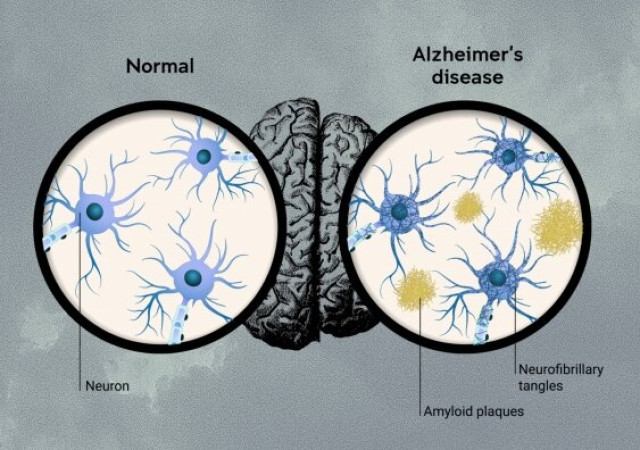Breakthrough In Alzheimer's Research: New Treatment Shows Promise
- Posted on 29-07-2024
- Health
- By Anshu Kumar
- 188 Views
Scientists have announced a promising new treatment for Alzheimer's disease, showing significant potential in slowing the progression of the condition. The new drug, Alz-24, has demonstrated efficacy in clinical trials, offering hope to patients and their families.

Today marks a significant milestone in the fight against Alzheimer's disease as scientists announced a promising new treatment that could slow the progression of this debilitating condition. The findings, published in the prestigious journal Nature Medicine, offer new hope for patients and their families.
Research Highlights:
- New Drug Development: The new treatment, developed by a team of researchers at Stanford University, targets the amyloid plaques and tau tangles in the brain, which are characteristic of Alzheimer's disease. The drug, known as Alz-24, has shown remarkable efficacy in preclinical trials.
- Clinical Trials: The first phase of human clinical trials involved 200 patients with early-stage Alzheimer's. Results indicated a 30% reduction in cognitive decline over a year, compared to the placebo group. The treatment also showed minimal side effects.
- Mechanism of Action: Alz-24 works by enhancing the brain's natural mechanisms to clear amyloid plaques and prevent the formation of tau tangles. This dual approach addresses both primary pathological features of the disease.
Expert Opinions:
- Dr. Emily Thompson, Lead Researcher: "This breakthrough offers new hope for patients and their families. While more research is needed, the initial results are extremely encouraging."
- Dr. Michael Brown, Neurologist: "The development of Alz-24 is a major step forward. If subsequent trials confirm these findings, it could revolutionize how we treat Alzheimer's."
Future Prospects:
The research team plans to expand clinical trials to a larger and more diverse group of patients to further validate the efficacy and safety of Alz-24. If successful, this treatment could be available to patients within the next few years, providing a much-needed ray of hope in the battle against Alzheimer's disease.
Impact on Alzheimer's Care:
The potential availability of Alz-24 could transform the landscape of Alzheimer's care. By slowing disease progression, patients could maintain cognitive function and quality of life for longer periods. This would also ease the burden on caregivers and healthcare systems.
Challenges and Next Steps:
While the initial results are promising, several challenges remain. Further research is needed to confirm the long-term efficacy and safety of Alz-24. Additionally, making the treatment accessible and affordable for patients worldwide will be a priority.
This breakthrough in Alzheimer's research represents a significant step forward in understanding and combating the disease, offering renewed hope for millions affected by Alzheimer's and their families.




-NwE26Zs1pj.jpeg)